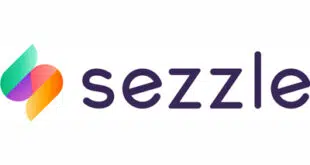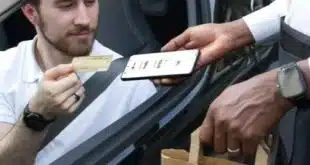Litigation between CardFree Inc. and Scvngr Inc., better known as LevelUp, has taken a nasty turn in recent weeks, with LevelUp accusing CardFree of high-pressure tactics outside the courtroom and CardFree charging LevelUp with more instances of fraudulent access to its mobile order-ahead-and-pay system.
In its June 21 answer to CardFree’s original complaint, LevelUp accuses CardFree and its counsel of approaching an unnamed LevelUp investor in an effort to influence that person against LevelUp. The Boston-based company also alleges San Francisco-based CardFree used press interviews to broadcast its complaint and heighten pressure on LevelUp to settle. CardFree demanded a $1.25 million settlement, according to LevelUp’s filing. Both tactics followed CardFree’s filing of its lawsuit, LevelUp asserts.

While both CardFree and LevelUp operate as providers of mobile-payment services, LevelUp does not directly offer order-ahead-and-pay capability for restaurants. Instead, it links to a variety of third-party providers of that service. In its lawsuit, CardFree charges that LevelUp exploited a flaw in the Android mobile operating system to generate fake accounts that gave LevelUp users access to CardFree’s system and opened the door to place orders with CardFree merchants, an allegation LevelUp dismisses as “baseless.”
Both LevelUp’s June 21 answer and a subsequent filing on July 12 argue the case, which CardFree filed in U.S. District Court for the Northern District of California, should either be dismissed or moved to Boston.
Responding to LevelUp with its own filing on July 5, CardFree asserts it found more instances of unauthorized access by LevelUp, including transactions outside of Boston. “CardFree employees … personally witnessed LevelUp offering Dunkin’ Donuts and Taco Bell online ordering in Colorado and Georgia … CardFree has identified potential LevelUp transactions in multiple states, including California,” CardFree’s filing says. Later, CardFree says its “initial investigation” indicated sales through the alleged scheme in 20 states.
For its part, LevelUp argues CardFree and its lawyers are hoping to strong-arm LevelUp into paying what LevelUp says is a disproportionate settlement claim. “CardFree’s complaint, rather than asserting a legitimate plea for relief, is a pretext for an abuse of legal process and a brazen attempt to defame LevelUp and create leverage to seek an extortionate ‘settlement’ payment,” LevelUp’s answer alleges.
The pressure tactics CardFree and its counsel resorted to, LevelUp charges, included “a reckless attempt to contact a key LevelUp partner and investor.” CardFree also sought to “amplify” its case, LevelUp asserts, by giving interviews to the press. A footnote identifies Digital Transactions News as one of the publications CardFree contacted (for the record, DTN made multiple efforts to contact LevelUp for comment when it learned of the CardFree suit, without response).
The lawsuit underlines the importance order-ahead-and-pay has assumed as a feature within mobile-payments apps, experts say. For the most part, the businesses developing this feature “are relatively small companies, and they’ve got to protect their turf,” says Raymond Pucci, associate director for research services at Mercator Advisory Group. The code is valuable enough, he says as a general comment, that assuming the costs of litigation to defend it “might be worth it.”
Nonetheless, “it seems unlikely LevelUp would risk piggybacking on someone else’s app,” says Aaron McPherson, an independent analyst. “There are obvious customer-service issues if things go wrong.”
The case is pending before U.S. District Judge Jon S. Tigar. Attorneys and executives for both parties did not respond to multiple requests for comment.





